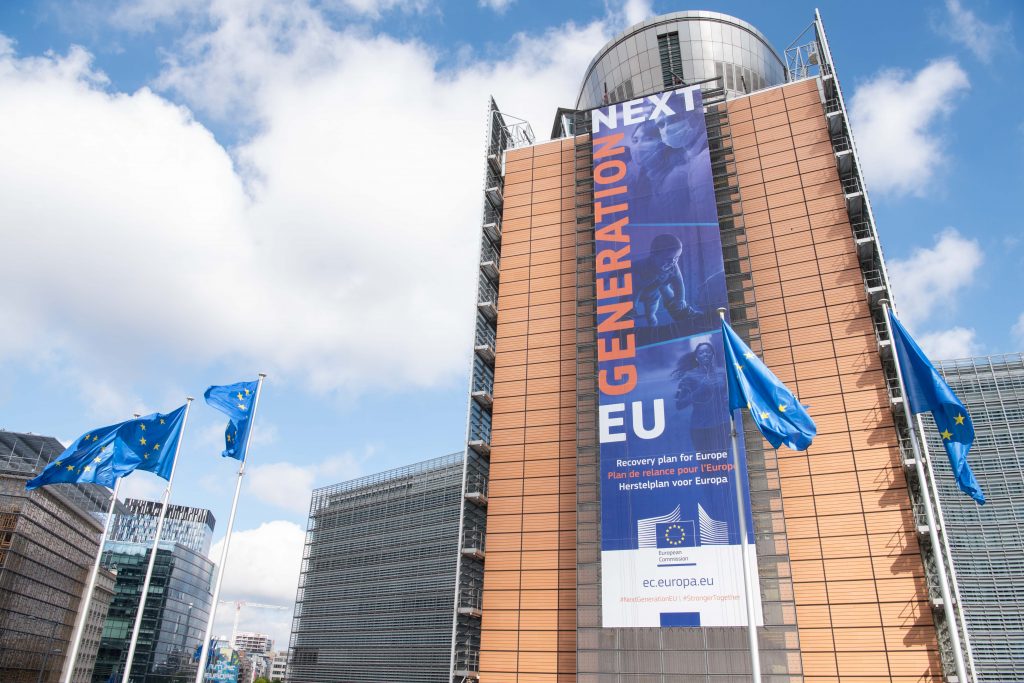By Gaspard Denis and François Denuit
On July 21, the heads of state and government of the European Union agreed on a budget-stimulus package of € 1,824.3 billion. Its original character lies essentially in the creation of a new instrument for the recovery (“Next Generation EU”) whose aim is to repair the damage caused by the Covid-19 pandemic, while initiating the necessary ecological and digital transitions of the EU. While the agreement contributes to breaking down many taboos – whether in terms of debt pooling, transfers between Member States, or massive public investment – it also presents many pitfalls: risks linked to its governance in the European Semester framework, inconsistent conditionality in terms of respect for the rule of law, a long-term budget with no future prospect and plagued by national egoism, a basket of new own resources insufficient to finance it, and an undermined ecological transition. Negotiations between the European Parliament and Member States’ representatives are ongoing but the prospect of obtaining a better compromise remains very uncertain.
Read the full article (in French) here
Photo: Copyright European Union.




